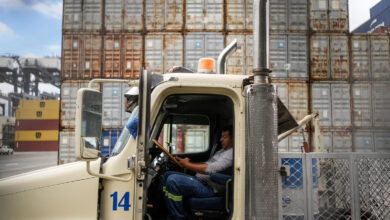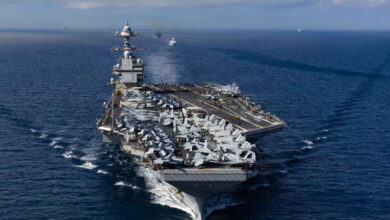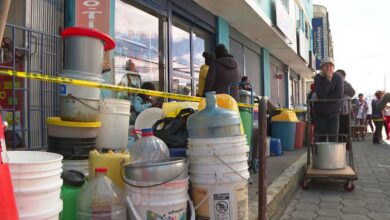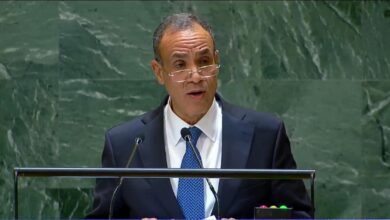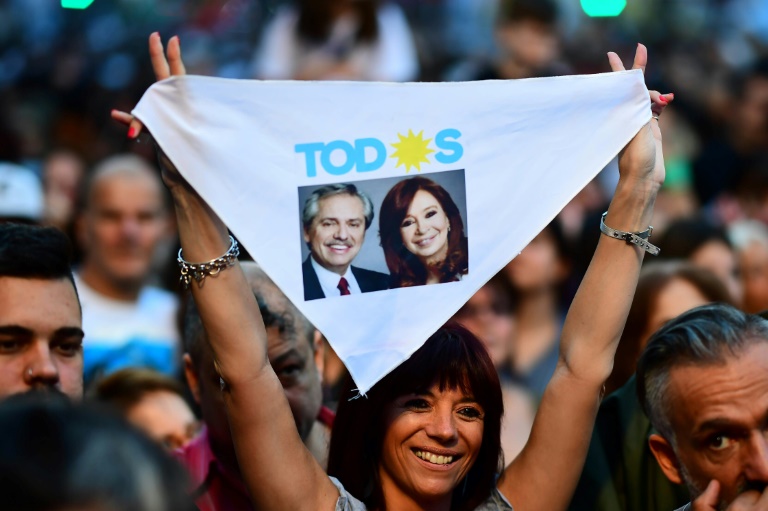
President-elect Alberto Fernandez has barely time to savor his emphatic triumph in Argentina’s elections before facing the challenge of trying to dampen likely volatile market reaction to his victory on Monday.
Fernandez is scheduled to have an early breakfast meeting with President Mauricio Macri at the Casa Rosada palace to begin cooperating on damage limitation as Argentina swings from Macri’s market-friendly policies back to Peronist protectionism.
“How the markets react will depend a lot on how the two candidates react,” said Raul Aragon, analyst at Argentina’s La Matanza University.
“It is very important that they immediately give a sign of tranquility to the markets and society and this they will have to do together, they will have to take action together,” he said.
“Tomorrow it will be pretty bad, there will be a lot of pressure on the peso and the banks,” said Nicolas Saldias, Latin American expert at the Wilson Center.
While most of the market reaction has been priced in ahead of an anticipated Fernandez victory, “the markets will be negative,” he said.
“Macri is president, but Alberto Fernandez has the power. There has to be some signal that they are working together. If there is no coordination the situation could quickly get even worse.”
The return to power of protectionist Peronists comes amid a lengthy recession and a debt crunch, raising market fears of a possible default on a $57 billion IMF loan.
The peso fell 5.86 percent in the week before the elections, and the week ended with the dollar at 65 pesos.
– Outright win –
Fernandez, a 60-year-old law professor, had 48 percent of the votes — easily crossing the threshold for outright victory — after 99 percent of the votes had been counted, with center-right incumbent Macri trailing at 40.44 percent.
His win also caps a remarkable political comeback for his running mate, ex-president Cristina Kirchner, who will be his vice-president despite facing a slew of trials over graft stemming for her 2007-2015 presidency.
Macri, 60, pledged “a healthy and constructive opposition.”
He told his supporters he had spoken by phone to Fernandez and had “invited him to breakfast tomorrow at the Casa Rosada because he has to start a period of orderly transition that will bring tranquility to Argentines.”
Fernandez earlier vowed to end the polarization which has long divided Argentine politics between his Peronist movement and supporters of the business-friendly incumbent.
“The days of ‘Us’ and ‘Them’ are over,” the mustachioed leftist leader said after voting in the swanky Puerto Madero neighborhood of Buenos Aires. “We are in an enormous crisis. Everyone has to take responsibility for what’s ahead.”
Thousands of ecstatic Fernandez supporters cheered and danced outside his Frente de Todos party headquarters in Buenos Aires even before the results were announced.
At Fernandez’s side, Kirchner called on Macri in the last days of his rule “to take all necessary measures to alleviate this dramatic situation.”
Argentina’s poverty rate has risen to more than 35 percent, inflation for the year to September was at almost 38 percent, while the peso has depreciated 70 percent since January 2018.
Macri, whose popularity has fallen sharply in the last year as Argentina battled recession and market turmoil, said after he voted that competing “visions of the future” were at stake in the polls.
On a night of disappointment for the center-right, there was some consolation when the candidate for Macri’s Together for Change coalition easily won the mayorship of the city of Buenos Aires.
– Regional tensions –
The election came amid high tensions in the region, with massive protests in neighboring Chile and Bolivia, as well as recent unrest over inequality in Ecuador.
Fernandez paid tribute to Evo Morales for his election victory in neighboring Bolivia to win a fourth term, and wished jailed ex-Brazil president Luis Inacio Lula da Silva — 74 on Sunday — a happy birthday.
Turnout in Sunday’s general election was over 80 percent after a campaign dominated by the crippling economic crisis affecting Latin America’s second-biggest economy.
Macri had called for a massive turnout, which analysts saw as his main hope of closing a large opinion poll deficit on Fernandez and forcing a second round.
Fernandez has insisted his government would not default but rather seek to renegotiate the terms of the loan, and sought to reassure voters that their bank deposits would be safe under his administration.
Since Fernandez’s crushing victory in August primaries, Argentine savers have withdrawn around $12 billion from their accounts.
Image: AFP / RONALDO SCHEMIDT Supporters of Argentina’s presidential election winner Alberto Fernandez celebrate outside his headquarters in Buenos Aires

